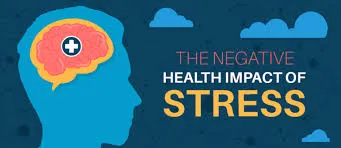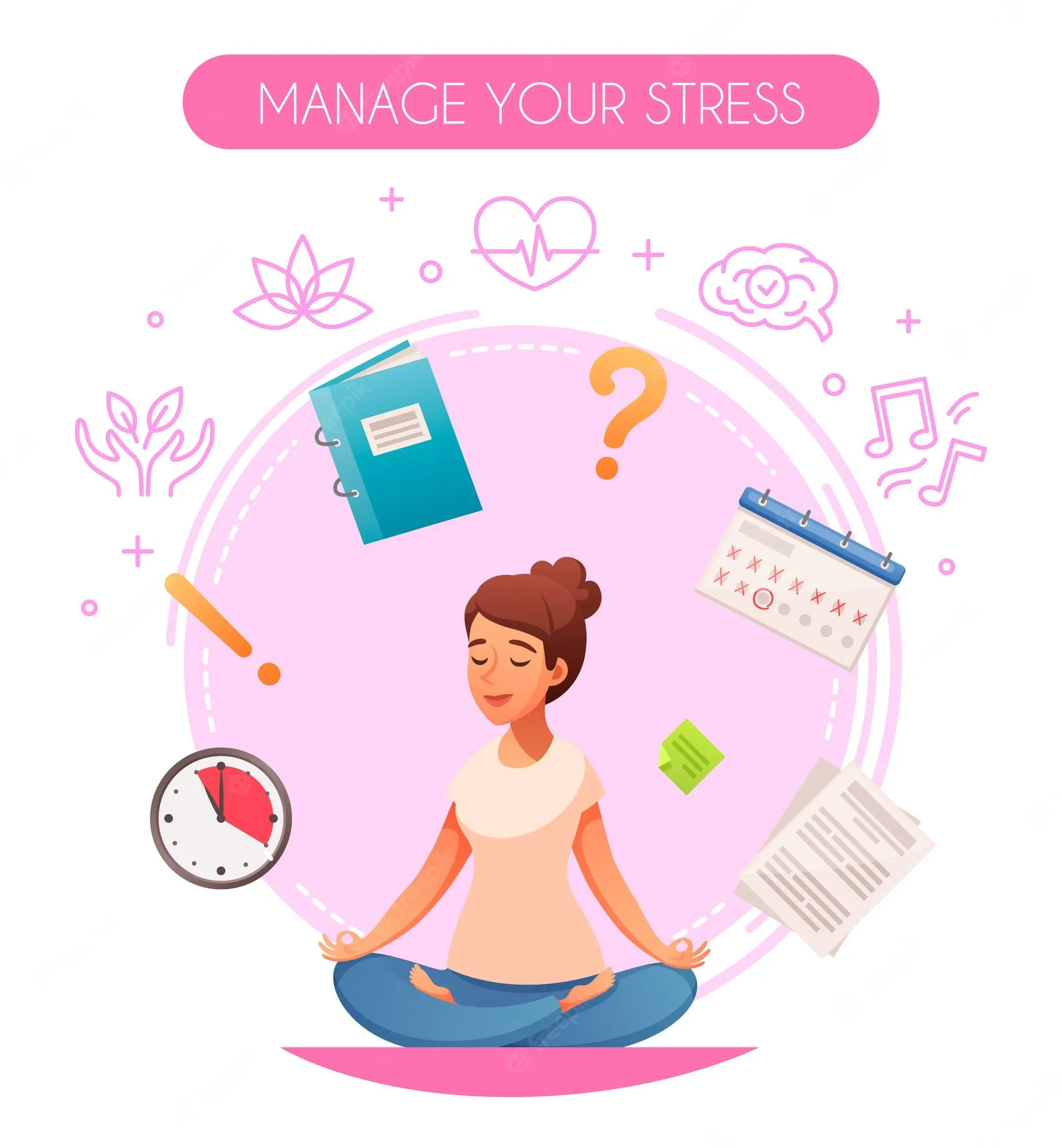Stress has become an inevitable part of our lives. From demanding work schedules to personal responsibilities and unexpected challenges, stress can manifest in various forms. Understanding stress for better health and effective stress management is important to effectively manage and prevent its negative effects. This article aims to provide insight into effective stress management for better health. and how to relieve stress quickly.

What is Stress?
Stress is a natural response to the demands and pressures we encounter in our daily lives. It can be defined as the body’s reaction to any change that requires adjustment or response. While stress is a normal part of life, prolonged or chronic stress can have detrimental effects on our physical, mental, and emotional well-being.
What Are The Five Stress Management Techniques?
Here are the list of five stress management plans for how to deal with stress and depression:
- Deep Breathing: Practicing deep, mindful breathing to calm the nervous system.
- Regular Exercise: Engaging in physical activity to reduce stress hormones and boost mood.
- Meditation and Mindfulness: Techniques that promote relaxation and focus on the present moment.
- Time Management: Organizing tasks and priorities to reduce feelings of overwhelm.
- Social Support: Seeking help and support from friends, family, or professionals when needed.
Causes Of Stress
Stress can arise from both external and internal factors. External stressors include work-related pressures, financial difficulties, relationship issues, and major life changes.
Internal stressors, on the other hand, stem from self-imposed expectations, perfectionism, negative self-talk, and unresolved emotions. Common triggers may include deadlines, conflicts, loss, or uncertainty.
The Impact of Stress on Health

Moreover, excessive or chronic stress can have significant implications for our health. Physically, stress can manifest as headaches, muscle tension, fatigue, and digestive problems. Additionally, it can contribute to more severe health issues over time.
It can weaken the immune system, making us more susceptible to illnesses. Mentally and emotionally, stress can lead to anxiety, irritability, mood swings, and difficulty concentrating. Over time, unmanaged stress can contribute to the development of chronic conditions like heart disease, hypertension, and mental health disorders.
Effective Stress Management For Better Health Techniques
To mitigate the negative impact of stress, adopting healthy coping mechanisms and lifestyle choices is essential. Making a stress management plan Engaging in regular physical activity, eating a balanced diet, and getting sufficient sleep are fundamental for managing stress.
Additionally, relaxation techniques such as deep breathing exercises, meditation, and mindfulness can help calm the mind and promote a sense of well-being. Time management skills and setting priorities can also alleviate stress by reducing overwhelming situations.
Preventing Stress
While it may not be possible to eliminate stress, we can take proactive steps to prevent excessive stress from accumulating. Building resilience by developing a positive mindset, practicing gratitude, and nurturing healthy relationships can increase our ability to handle stressful situations.
It is important to recognize and address our limitations for how to relieve stress quickly, setting boundaries to prevent becoming overwhelmed. Developing healthy coping mechanisms, such as engaging in hobbies or seeking support from loved ones, can also contribute to stress prevention.
Seeking Support
Managing stress becomes more manageable when we have a support system in place. Social support from friends, family, or support groups can provide a safe space for expressing emotions and seeking guidance. If stress becomes overwhelming, seeking professional help from therapists or counselors can be beneficial.
There are also various resources available, such as stress management courses, books, and online platforms, that offer practical tools and techniques to manage stress effectively. Practicing self-care regularly, and engaging in activities that bring joy and relaxation, are other important aspects of seeking support.
Benefits Of Stress Management Plan
- Improved Physical Health: Stress management can reduce the risk of stress-related health problems such as heart disease, high blood pressure, and weakened immune system.
- Enhanced Emotional Well-being: It helps lower anxiety, depression, and mood swings, promoting emotional stability and resilience.
- Better Cognitive Function: Managing stress can sharpen focus, memory, and decision-making abilities. Furthermore, it can enhance overall cognitive function.
- Increased Productivity: Reduced stress leads to higher work efficiency and better time management.
- Enhanced Relationships: Managing stress can improve communication and reduce conflicts in personal and professional relationships.
- Quality Sleep: Stress management can lead to better sleep patterns and improved sleep quality.
- Boosted Confidence: It enhances self-esteem and the ability to handle challenging situations.
- Longevity: Reduced stress can potentially lead to a longer, healthier life.
- Overall Well-being: Stress management contributes to a sense of balance and contentment in life.
FAQ: Effective Stress Management for Better Health
Stress management involves strategies and techniques to cope with and reduce the negative effects of stress. It is essential for health because chronic stress can lead to various physical and mental health problems.
Common signs of stress include increased anxiety, irritability, muscle tension, fatigue, sleep disturbances, and changes in appetite.
Effective stress management techniques include deep breathing exercises, mindfulness and meditation, regular exercise, time management, and seeking social support.
Yes, effective stress management can lead to improved physical health, emotional stability, enhanced relationships, and increased productivity, ultimately contributing to better overall well-being.
Conclusions: Effective Stress Management for Better Health
In conclusion, understanding stress and its impact on our health is crucial for leading a balanced and fulfilling life. By recognizing the causes of stress, implementing effective stress management techniques, and actively working to prevent excessive stress, we can mitigate its negative effects.
Remember to prioritize self-care, seek support from loved ones and professionals, and make stress management a priority in your life. By doing so, you can improve your overall well-being and lead a happier, healthier life.


2 Comments
[…] our fast-paced and often chaotic lives, Mental Health Impacts Physical Well-being. Mindfulness offers a powerful tool to navigate the storms of life and cultivate a sense of inner […]
[…] The monkey pox cases are mainly found in portions of West and Central Africa. Nearly all previous instances, up until recently, were believed to have been brought on by travel to Africa, where rodents are thought to transmit the virus and occasionally infect people. The recent outbreak is unique. Doctors are witnessing cases that are unrelated to travel both in North America and elsewhere. Monkey pox, unlike smallpox, seldom results in death, and the majority of cases go away on their own without a care in a few weeks. It’s crucial to understand how the illness spreads to safeguard both yourself and other people because the characteristic rash can be distressing. […]